
We Honor Veterans partners recognize the military service of Veterans with special pinning ceremonies and awards. “We Honor Veterans partners are on a mission to serve our nation’s Veterans with the dignity they deserve,” says NHPCO President and CEO, J. Donald Schumacher. “We equip our partners with the resources to acquire the necessary skills to understand and serve the unique needs of our Veterans.”
How does Karen Ann Quinlan Hospice help veterans?
It was recently announced that the National Hospice and Palliative Care Organization and Department of Veterans Affairs continued their commitment and development of the highly successful We Honor Veterans program. This national initiative engages community partners in the care of veterans, especially those facing advanced illness and nearing the end of life. NHPCO and the VA launched We Honor Veterans (WHV) in 2010 to address the growing need for veteran-centered care, especially as Veterans are aging and need access to palliative and hospice care.
“As there will continue to be more than 500,000 Veterans dying each year for the next decade, VA’s collaboration with community programs is needed if we are going to address the needs of an even larger number of seriously ill Veterans,” says Scott T. Shreve, DO, National Director, Hospice and Palliative Care for the Department of Veterans Affairs. “These demographic projections also call for increased understanding of the different war eras (e.g., Vietnam Era) as approaches to end of life care need to adapt to each Veteran’s needs.”
To ensure each enrolled Hospice has “earned their stars” and has the proper training to meet the needs of their veteran community, they must progress through a series of levels. Each hospice partner level has a matching logo that makes it easy for VA staff and Veterans to identify those who have made the commitment to offer Veteran-specific care; thus assuring the services the hospice provides are performed by a competent and highly skilled workforce. In order to meet those requirements, Karen Ann Quinlan Hospice has pledged to the WHV program and has completed level four out of the four levels; which entails a series of training programs, outreaches, partnerships and events.
We Honor Veterans, a program of the National Hospice and Palliative Care Organization (NHPCO) in collaboration with the Department of Veterans Affairs (VA), invites hospices, state hospice organizations, Hospice-Veteran Partnerships and VA facilities to join a pioneering program focused on respectful inquiry, compassionate listening and grateful acknowledgment. By recognizing the unique needs of America’s veterans and their families, community providers, in partnership with VA staff, will learn how to accompany and guide them through their life stories toward a more peaceful ending.
We Honor Veterans provides educational tools and resources in advancing these goals:
- Promote Veteran-centric educational activities
- Increase organizational capacity to serve Veterans
- Support development of strategic partnerships
- Increase access and improve quality
The goal of the program is simple – to care for and honor those who have served when they reach the end of life. By working through the partner levels and participating in community partnerships and collaborations, partner organizations are able to educate, engage, and expand awareness to Veterans and their families. A vast majority of Veterans are not enrolled in VA and may not be aware of end-of-life services and benefits available to them, including the Medicare Hospice Benefit and VA-paid hospice care.
The National Hospice and Palliative Care Organization is the largest nonprofit membership organization representing hospice and palliative care programs and professionals in the United States. The organization is committed to improving end of life care and expanding access to hospice care with the goal of profoundly enhancing quality of life for people dying in America their loved ones.
Considered to be the model for quality, compassionate care at the end of life, hospice care involves a team-oriented approach of expert medical care, pain management, and emotional and spiritual support expressly tailored to the patient’s wishes. Emotional and spiritual support also is extended to the family and loved ones. Generally, this care is provided in the patient’s home or in a home-like setting operated by a hospice program. Medicare, private health insurance, and Medicaid in most states cover hospice care for patients who meet certain criteria.
By recognizing their unique conditions, hospice professionals can learn how to accompany and guide veterans and their families through their life stories toward a more peaceful ending. The Karen Ann Quinlan Memorial Foundation is passionately dedicated to providing Hospice care for the terminally ill and Bereavement for those who have lost loved ones. Serving Northwest NJ and Northeast PA; please call 800 882 1117 to reach any of our services at either office; Karen Ann Quinlan Hospice, 99 Sparta Ave., Newton, NJ and Karen Ann Quinlan Hospice, 104 Bennett Ave., Milford, PA. Karen Ann Quinlan Hospice is an independently owned hospice program and proud to be the preferred hospice provider for Newton Medical Center and our area Atlantic Health Care System.
Click here to download a brochure with more information about the “We Honor Veterans” Partnership.
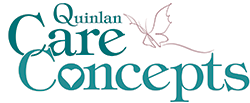
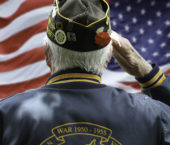
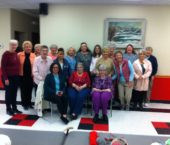
 The North Warren KnitWit members knit and crochet shawls, lap blankets, hats and scarves that they donate to Karen Ann Quinlan Hospice and other charities and organizations in Sussex and Warren County. They are in need of yarn donations to continue their work. Anyone wishing to donate can drop off yarn at the North Warren Library Catherine Dickson Hofman Branch located on 4 Lambert Rd in Blairstown. The group meets at the library every Tuesday from 9:30 a.m. – 12 noon and is always looking for new members.
The North Warren KnitWit members knit and crochet shawls, lap blankets, hats and scarves that they donate to Karen Ann Quinlan Hospice and other charities and organizations in Sussex and Warren County. They are in need of yarn donations to continue their work. Anyone wishing to donate can drop off yarn at the North Warren Library Catherine Dickson Hofman Branch located on 4 Lambert Rd in Blairstown. The group meets at the library every Tuesday from 9:30 a.m. – 12 noon and is always looking for new members.
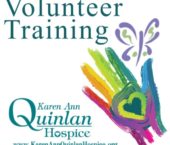
 Karen Ann Quinlan Hospice would like to thank Toyota World of Newton for their recent book donation. Pictured are Ellen Thiessen of Toyota World and Nicole Hammer, Development Associate for the Hospice.
Karen Ann Quinlan Hospice would like to thank Toyota World of Newton for their recent book donation. Pictured are Ellen Thiessen of Toyota World and Nicole Hammer, Development Associate for the Hospice. 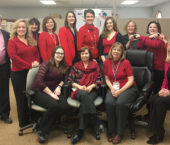


 On January 1, 2018, members of the Blue Knights Chapter IX motorcycle club rang in the new year by riding out in the annual Chilly Chili Run to benefit Karen Ann Quinlan Hospice.
On January 1, 2018, members of the Blue Knights Chapter IX motorcycle club rang in the new year by riding out in the annual Chilly Chili Run to benefit Karen Ann Quinlan Hospice.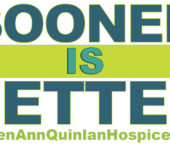


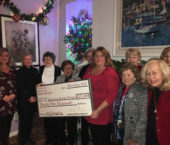


 Register Ready is New Jersey’s Special Needs Registry for disasters. The New Jersey Office of Emergency Management (NJOEM) is encouraging New Jersey residents with disabilities or access and functional needs to sign up with Register Ready well before disaster strikes. The confidential registry allows citizens the opportunity to provide information to emergency response agencies so emergency responders can better plan to serve these individuals in a disaster or other emergency.
Register Ready is New Jersey’s Special Needs Registry for disasters. The New Jersey Office of Emergency Management (NJOEM) is encouraging New Jersey residents with disabilities or access and functional needs to sign up with Register Ready well before disaster strikes. The confidential registry allows citizens the opportunity to provide information to emergency response agencies so emergency responders can better plan to serve these individuals in a disaster or other emergency.